10 Best Herbal Syrups For Premenstrual Syndrome

Herbal syrups have gained popularity as a natural remedy for managing premenstrual syndrome (PMS) symptoms due to their potential to ease discomfort without the side effects of pharmaceuticals.
Commonly used herbs in these syrups include chasteberry, ginger, and evening primrose oil, which are believed to help regulate hormonal fluctuations and reduce bloating, mood swings, and cramps. Many herbal syrups are formulated with a combination of plant-based ingredients to support overall wellness during the menstrual cycle. While they are generally considered safe, it is important to consult a healthcare provider before use, especially for those with existing medical conditions or taking other medications.
Overall, herbal syrups offer a gentle, holistic approach to alleviating PMS symptoms for many women.
Table of Contents
- 1. Chaste tree (Vitex agnus-castus)
- 2. Valerian (Valeriana officinalis)
- 3. Black cohosh (Cimicifuga racemosa)
- 4. Stinging nettle (Urtica dioica)
- 5. Heartworts (Leonurus cardiaca)
- 6. Ginger (Zingiber officinale)
- 7. Tree peony (Paeonia suffruticosa)
- 8. Fennel (Foeniculum vulgare)
- 9. White water lily (Nymphaea alba)
- 10. Rosemary (Rosmarinus officinalis)
1. Chaste tree (Vitex agnus-castus)

Vitex agnus-castus, commonly known as chasteberry, is a herbal remedy often used in the form of syrup to alleviate symptoms of premenstrual syndrome (PMS).
This herb is believed to support hormonal balance by influencing the pituitary gland, which can help regulate menstrual cycles and reduce PMS-related symptoms such as mood swings, bloating, and breast tenderness. Herbal syrups containing vitex are typically taken orally, with dosages varying based on the product and individual needs. While some studies suggest that vitex may be effective for certain PMS symptoms, more research is needed to fully understand its efficacy and safety.
As with any herbal supplement, it is advisable to consult a healthcare provider before use, especially for those with existing medical conditions or taking other medications.
2. Valerian (Valeriana officinalis)
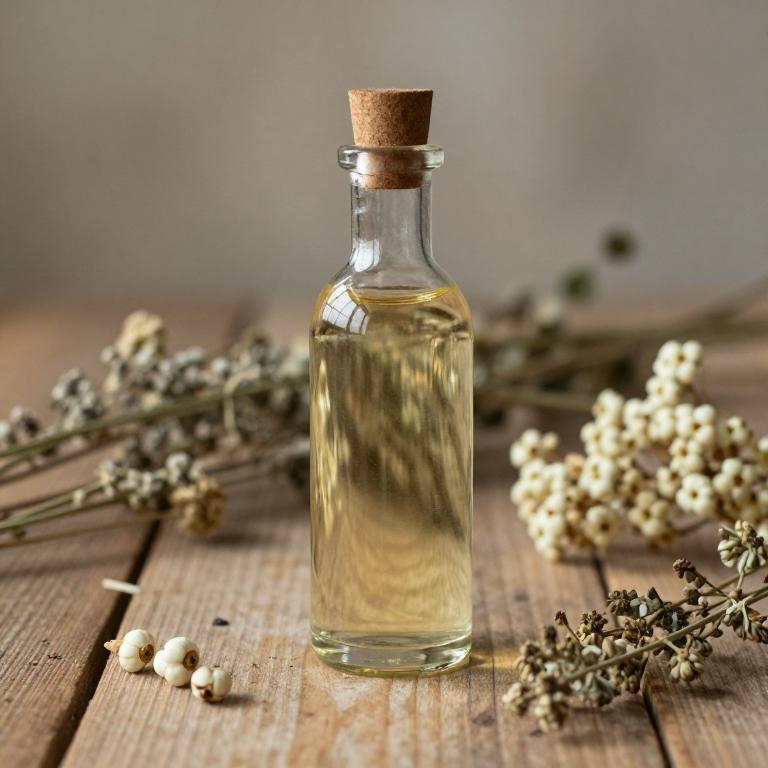
Valeriana officinalis, commonly known as valerian, is a traditional herbal remedy that has been used for centuries to address various nervous system disorders.
Herbal syrups made from valerian root are often recommended for their calming properties, which may help alleviate symptoms of premenstrual syndrome (PMS), such as anxiety, irritability, and sleep disturbances. The active compounds in valerian, including valepotriates and iridoids, are believed to influence the central nervous system by enhancing the effects of GABA, a neurotransmitter that promotes relaxation. While some studies suggest valerian may offer mild relief for PMS-related symptoms, more research is needed to confirm its efficacy and optimal dosage.
As with any herbal supplement, it is important to consult a healthcare provider before use, especially for individuals with underlying health conditions or those taking other medications.
3. Black cohosh (Cimicifuga racemosa)
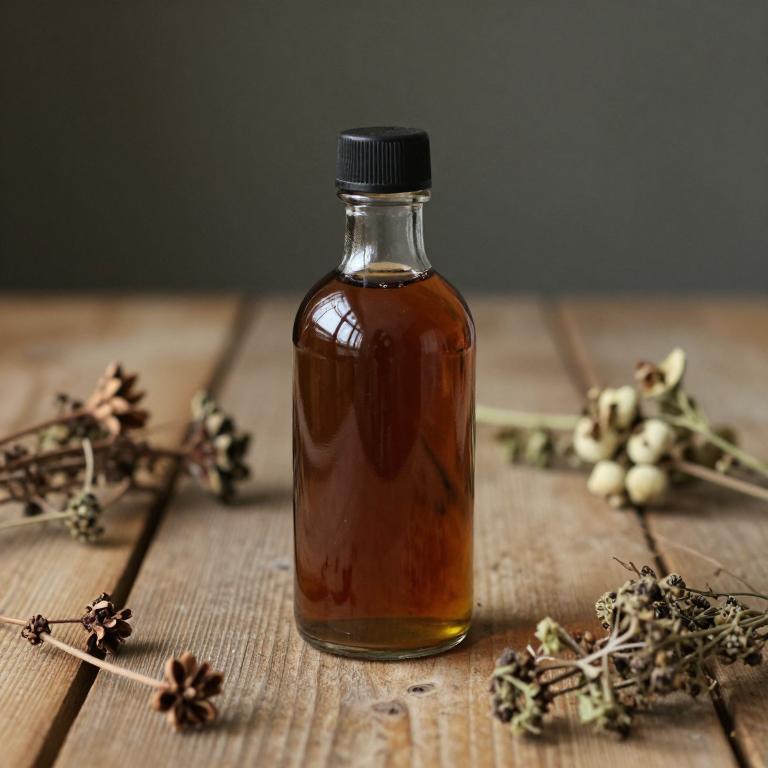
Cimicifuga racemosa, commonly known as black cohosh, has been traditionally used to alleviate symptoms of premenstrual syndrome (PMS).
Herbal syrups containing cimicifuga racemosa are often prescribed for their potential to reduce menstrual cramps, mood swings, and breast tenderness associated with PMS. Studies suggest that the active compounds in black cohosh may help regulate hormonal imbalances that contribute to PMS symptoms. These syrups are typically taken orally, with dosages varying based on individual needs and the severity of symptoms.
While generally considered safe, it is important to consult a healthcare provider before use, especially for pregnant or breastfeeding women, as safety profiles may differ.
4. Stinging nettle (Urtica dioica)

Urtica dioica, commonly known as stinging nettle, has been traditionally used in herbal medicine for its potential health benefits, including alleviating symptoms of premenstrual syndrome (PMS).
Herbal syrups made from Urtica dioica are believed to support hormonal balance and reduce inflammation, which are key factors in PMS symptoms such as bloating, mood swings, and fatigue. These syrups are often prepared by drying and infusing the leaves in a sweet syrup, making them easy to consume and suitable for daily use. Some studies suggest that the high concentration of minerals and antioxidants in stinging nettle may contribute to its effectiveness in managing PMS-related discomfort.
However, it is important to consult with a healthcare provider before using Urtica dioica syrups, especially for individuals with existing health conditions or those taking medications.
5. Heartworts (Leonurus cardiaca)
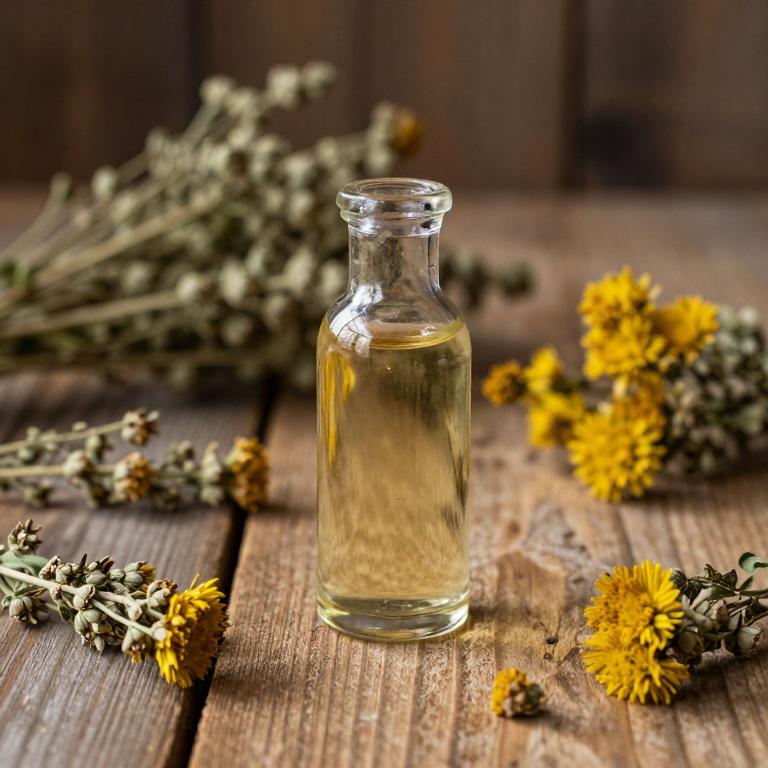
Leonurus cardiaca, commonly known as heartwort, has been traditionally used in herbal medicine for its potential benefits in alleviating symptoms of premenstrual syndrome (PMS).
Herbal syrups made from Leonurus cardiaca are believed to help reduce menstrual cramps, mood swings, and breast tenderness associated with PMS due to their purported sedative and antispasmodic properties. These syrups are often prepared by infusing the dried leaves and flowers in a base of honey or sugar syrup, making them easy to consume. While some studies suggest possible efficacy, more rigorous clinical research is needed to confirm their effectiveness and safety for PMS management.
As with any herbal remedy, it is advisable to consult a healthcare provider before use, especially for individuals with existing medical conditions or those taking other medications.
6. Ginger (Zingiber officinale)

Zingiber officinale, commonly known as ginger, has been widely used in traditional medicine for its potential therapeutic effects on various health conditions, including premenstrual syndrome (PMS).
Herbal syrups made from ginger are often used to alleviate common PMS symptoms such as nausea, bloating, and mood swings due to their anti-inflammatory and antispasmodic properties. These syrups are typically prepared by extracting the active compounds from fresh or dried ginger root and dissolving them in a sweetened liquid base. Studies suggest that ginger may help regulate hormonal fluctuations and reduce menstrual discomfort, making it a natural alternative for managing PMS symptoms.
However, it is important to consult a healthcare provider before using ginger syrups, especially for individuals with underlying health conditions or those taking medications.
7. Tree peony (Paeonia suffruticosa)
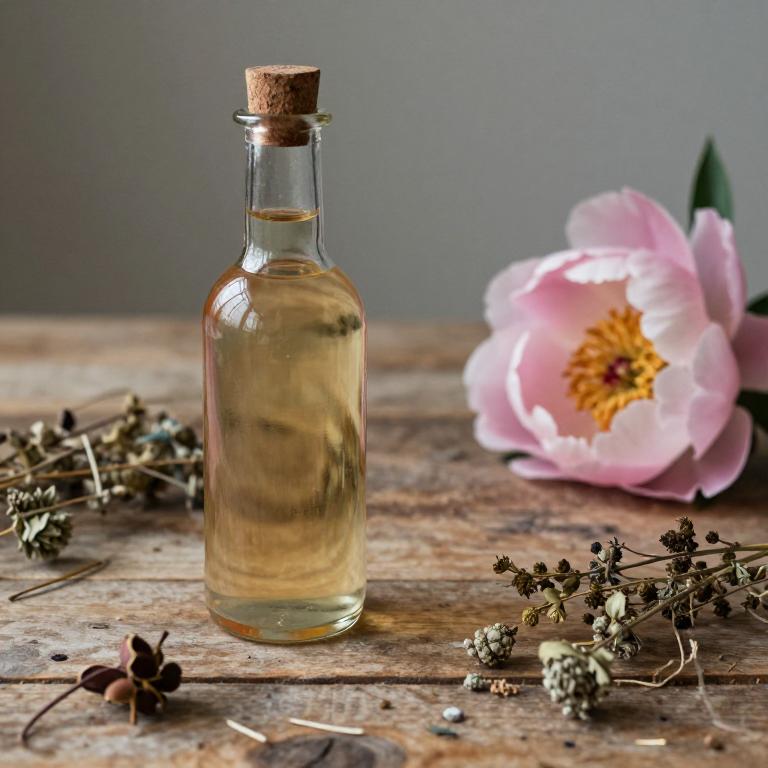
Paeonia suffruticosa, commonly known as tree peony, has been traditionally used in herbal medicine for its potential benefits in managing premenstrual syndrome (PMS).
Herbal syrups made from Paeonia suffruticosa are believed to help alleviate common PMS symptoms such as mood swings, irritability, and breast tenderness due to their anti-inflammatory and calming properties. These syrups are often prepared by extracting the roots or flowers of the plant, which contain bioactive compounds like flavonoids and alkaloids. Preliminary studies suggest that Paeonia suffruticosa may regulate hormonal imbalances and reduce stress, making it a promising natural remedy for women experiencing PMS.
However, more clinical research is needed to fully establish its efficacy and safety for widespread use.
8. Fennel (Foeniculum vulgare)

Foeniculum vulgare, commonly known as fennel, has been traditionally used in herbal medicine to alleviate symptoms of premenstrual syndrome (PMS).
Fennel herbal syrups are often prepared from the dried seeds of the plant and are valued for their potential to ease cramps, bloating, and mood swings associated with PMS. The essential oils in fennel, particularly anethole, are believed to have mild sedative and antispasmodic properties that may help reduce menstrual discomfort. While some studies suggest that fennel may support hormonal balance, more research is needed to confirm its efficacy for PMS.
As with any herbal remedy, it is important to consult with a healthcare provider before use, especially for individuals with allergies or those taking other medications.
9. White water lily (Nymphaea alba)
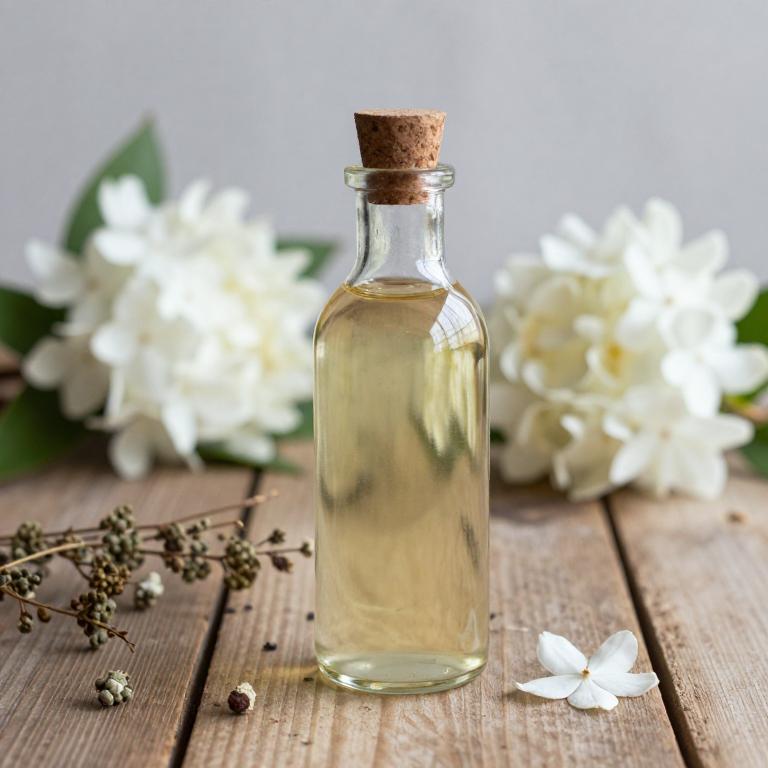
Nymphaea alba, also known as white water lily, has been traditionally used in herbal medicine for its calming and soothing properties.
Herbal syrups made from Nymphaea alba are often recommended for managing symptoms of premenstrual syndrome (PMS), such as mood swings, anxiety, and irritability. The plant contains compounds that may help regulate hormonal fluctuations and reduce inflammation, which are common during the menstrual cycle. These syrups are typically prepared by infusing the dried petals in honey or sugar, creating a pleasant and easy-to-consume formulation.
While more research is needed, preliminary studies suggest that Nymphaea alba herbal syrups may offer a natural and supportive option for women experiencing PMS symptoms.
10. Rosemary (Rosmarinus officinalis)

Rosmarinus officinalis, commonly known as rosemary, has been traditionally used for its medicinal properties, and recent studies suggest that rosemary herbal syrups may offer relief for symptoms of premenstrual syndrome (PMS).
The essential oils in rosemary, particularly camphor and 1,8-cineole, are believed to possess anti-inflammatory and mood-enhancing effects that may help alleviate PMS-related discomfort. When consumed as a syrup, rosemary can be easily absorbed into the bloodstream, allowing its active compounds to exert their calming and pain-relieving properties. Some clinical trials have indicated that rosemary supplementation may reduce symptoms such as bloating, irritability, and fatigue associated with PMS.
However, it is important to consult with a healthcare provider before using rosemary syrup, especially for individuals with existing health conditions or those taking other medications.